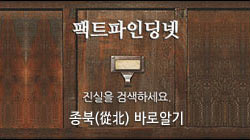The next scene deepens our sense that Denmark is in political crisis, as Claudius prepares a diplomatic strategy to divert the threat from Fortinbras. We also learn that as far as Hamlet is concerned, his family is in crisis: his father is dead and his mother has married someone Hamlet disapproves of. Hamlet is also experiencing an internal crisis. Gertrude and Claudius are worried about his mood, and in his first soliloquy we discover that he feels suicidal: “O that this too, too sullied flesh would melt” (I.ii.).
The three crises of the play’s opening—in the kingdom, in Hamlet’s family, and in Hamlet’s mind—lay the groundwork for the play’s inciting incident: the Ghost’s demand that Hamlet avenge his father’s death. Hamlet accepts at once that it is his duty to take revenge, and the audience can also see that Hamlet’s revenge would go some way to resolving the play’s three crises. By killing Claudius, Hamlet could in one stroke remove a weak and immoral king, extract his mother from what he sees as a bad marriage, and make himself king of Denmark. Throughout the inciting incident, however, there are hints that Hamlet’s revenge will be derailed by an internal struggle. The Ghost warns him: “Taint not thy mind nor let thy soul contrive/Against thy mother aught” (I.v.). When Horatio and Marcellus catch up to Hamlet after the Ghost’s departure, Hamlet is already talking in such a deranged way that Horatio describes it as 'wild and whirling' (I.v.), and Hamlet tells them that he may fake an 'antic disposition' (I.v.). The audience understands that the coming conflict will not be between Hamlet and Claudius but between Hamlet and his own mind.
다음 장은 Claudius가 Fortinbras의 위협을 다른 데로 전환하기 위한 외교적 전략을 준비하면서, 덴마크는 정치적 위기에 처해 있다는 우리의 느낌을 심화시킨다. 우리는 또한 Hamlet에 관한 한 그의 가족이 위기에 처해 있다는 것을 알게 된다: 그의 아버지는 죽어 있고 그의 어머니는 Hamlet이 인정하지 않는 사람과 결혼하였다. Hamlet은 또한 내적 위기도 경험하고 있다. Gertrude와 Claudius는 그의 심기(mood)에 대해서 걱정하고 있고 그리고 그의 첫 번째 독백에서 우리는 그가 자살을 생각하고 있다는 것을 느낀다:“아, 이 너무나 더러운 몸뚱이 녹고 녹아서.”
극의 서막의 세 위기는―나라의, Hamlet 가족의, Hamlet 마음의―극의 선동적인 사건의 토대를 놓았다: Hamlet이 그의 아버지의 죽음에 대해서 복수를 해야 된다는 유령의 명령. Hamlet은 복수하는 것이 그의 의무라는 것을 즉각 수용하고 관중도 Hamlet의 복수는 극의 세 가지 위기를 해결하는 데 도움이 될 것이라는 것을 안다. Claudius를 죽임에 의해서 Hamlet은 일격에 약하고 부도덕한 왕을 제거할 수 있고 그가 나쁜 결혼이라고 생각하는 것으로부터 어머니를 뽑아올 수 있으며 자신을 덴마크의 왕으로 만들 수 있을 것이다. 그러나 그 격동적인 사건 전체를 통해서 Hamlet의 복수는 내적인 투쟁에 의해서 탈선될 것이라는 암시가 있다. 유령은 그에게 경고한다: “마음이 흐려져(taint) 너의 어머니를 해치는 일은 말아다오.” 유령이 떠난 뒤에 Horatio와 Marcellus가 쫓아왔을 때 Hamlet은 이미 정신이 흐트러진 상태에서 말하고 있어서 Horatio는 그것(Hamlet의 말)을 '도무지 허황된' 것으로 묘사하고 Hamlet은 그들에게 가짜로 '이상야릇한 행동'을 할지도 모른다고 말한다. 관중은 다가오는 갈등은 Hamlet과 Claudius 사이에 있지 않고 Hamlet과 자신의 마음 사이에 있을 것이라는 것을 이해하게 된다.
* 해설
Hamlet이 神에게 기도하고 있는 왕(Claudius)을 죽이지 않는 것은 힘이 없는 왕이 神에게 애원하고 있다고 생각하기 때문이 아니다. 또한 '복수는 神의 소관'이라고 생각하거나 과도하고도 무자비한 복수심 때문도 아니다. Hamlet이 기도하고 있는 왕을 살려 주는 것은 행위와 응징의 완전한 일치를 위해서이다. 참회하고 있는 왕을 죽이면 그는 천국으로 갈 것이다. 그러면 왕은 악의 행위에 대한 응분의 벌을 받지 않게 되는 것이다. Hamlet에게는 이것은 정의가 될 수 없다. 죄의 행동에 부응하는 형벌을 가하는 것이 절대적인 정의이다. 그리고 이런 완벽한 정의만이 죄악으로 병든 사회에 대한 분노와 혐오로 고통 받고 있는 Hamlet의 영혼에 위로와 평안을 가져올 것이다. 그러나 Hamlet의 아버지는 이렇게까지 철저한 정의를 요구하지는 않는다.
그리고 Hamlet 외의 그 누구도 이런 절대적 정의를 요구하지 않는다. Hamlet은 완벽의 화신으로서 神의 의지를 대행하려고 시도하는 것이다. Hamlet은 그가 가지고 있는 비극적 영웅의 특성―찬란하게 빛나는 절대적 진리의 추구―으로 인해 자신이 불완전한 인간이라는 사실을 망각하고 완벽을 추구하다가 자만의 덫에 걸려 전락하게 된다. 그는 자신의 절대성에 사로잡혀 있는 이상주의자가 되고 자신의 도덕적 명령에 따라 행동함으로써 패배하는 도덕적 절대주의의 희생자이다. 그는 정의라는 제단에 바쳐진 희생양이다.(계속)













 朴承用
朴承用







 트위터
트위터 페이스북
페이스북 미투데이
미투데이 요즘
요즘 네이버
네이버































